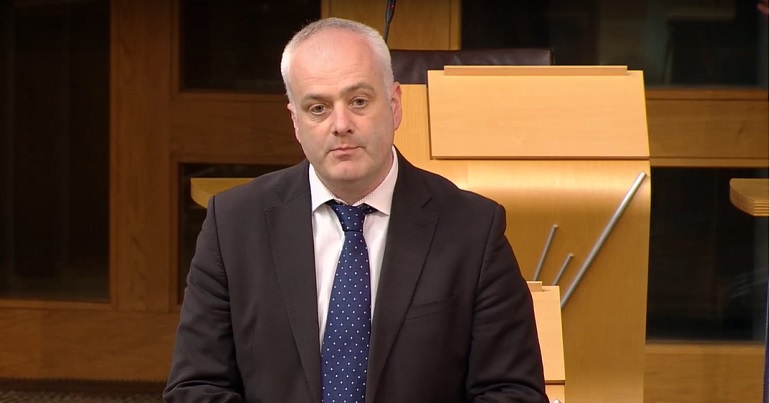Because Climategate is still a thing?
By Sophie Lewis
Anyone who Googles “Climategate” will find 832,000 results, the first of which is a Wikipedia definition of the phenomenon that suggests its accession to a state of considerable cultural currency. The Climategate, so-called, has very recently been back in the news, with an interminable and entirely tedious process involving the nit-picking of the hearing of the review of the inquiry of the hacking of the U.E.A.’s emails featuring in The Guardian again, courtesy of Fred Pearce (September 2010). Back in November and December 2009, we all remember, the social, tabloid, broadsheet and broadcast media came together to create the original “Global Warming is Fake!!” storm in a teacup on a deafening scale, which goes a long way to explain the ongoing attention levelled at, in this instance, Lord Lawson’s sceptic thinktank’s complaints about the Muir Russell report which absolved UEA scientists of the charge of lying. Fred Pearce’s The Climate Files is a heroic work, navigating an ideological tightrope between wisdom, morality and investigative ruthlessness. Pearce has, as will become apparent in my bibliography, become “THE” Climategate expert for the limited middle-class demographic represented by The Guardian media, and in his articles, as in the book, he dispels both the assumptions of those prone to improper, knee-jerk defence of the scientists, and the entirely comprehensible responses of shock and dismay harboured by those not already so committed in conscience to the reality of man-made climate change. But, perhaps astonishingly, Fred Pearce appeared as recently as last month in the Daily Mail[1], and the dissemination of more complex discourse around climate change therefore bodes well. The Mail returned 36 results online to the search ‘climategate’: a majority of which asserted the principle of uncertainty, and overturned allegations that the emails called into question the principle of anthropogenic climate change.
Notwithstanding this, the second result on google is an old blog from The Telegraph by Tea Party supporter James Delingpole, whose official bioline runs “writer, journalist and broadcaster who is right about everything”. (The third is an article by the more celebrated climate sceptic Christopher Booker, again, from The Telegraph.) In his Climategate blog entry of November 2009, Delingpole urges anyone with shares “in alternative energy companies [to] start dumping them now”: “[this is] the final nail in the coffin of ‘Anthropogenic Global Warming’”.[2] Further, in his personal website www.jamesdelingpole.com, James Delingpole most recently proved his staunch resistance to any Climategate-related Truth and Reconciliation by inveighing (Oct.28th 2010) against the amount of money the Coalition was spending on “climate change” (quotation marks, needless to say, in the original): “I know what you’re thinking and I’ve heard about the “consensus” too. But when you can actually prove something you don’t need a consensus. That’s why you never hear about the consensus on gravity, or the consensus on evolution. Saying that 97% of climate scientists believe in global warming is an awful lot like saying that 97% of priests believe in God.”[3] I linger upon this prominent example of denialist distortion of the news story, firstly, to illustrate the kind of populist common-senseism deployed by climate sceptics in their cause.
What the framing of ‘Climategate’ as an exposure of deceit and vested interests at the very core of climate science achieved was a significant shift to the right, in an extensive cross-section of the discourse. The burden of proof was placed back firmly upon those proposing anthropogenic climate change; the ‘default’ status, until proven guilty, was once again the faux innocence of the world inhabited by neoliberalism, whose most sophisticated gambit is perhaps the re-deployment of allegations of ‘hubris’ back at the “lefty liberals” (supporters of state action) Delingpole attempts to lambast in his book How To Be Right: the Essential Guide to Making Lefty Liberals History. (A vitriolic refutation by the lefty liberal John Crace was published in The Guardian at the time in the form of a ‘digested read’: “Environment, The: What’s so bloody special about the Environment anyway? I saw this TV programme the other day that says global warming isn’t happening. I didn’t understand much of it but it sounds controversial and rightwing so it must be true” 2007.[4]) The Guardian-reading demographic was poised to reject as tasteless any seizure upon controversy by The Telegraph; conversely, The Telegraph announced its anti-Guardian position long before it bayed for the IPCC’s blood. I lay out this particular instance of squabbling in the run-up to Climate-gate, secondly, therefore, to demonstrate that attitudes to the news of the leaked emails tended to be acutely partisan and disconnected from the facts, with arguments both ‘for’ and ‘against’ the significance of the leak likely to have been prepared, years before, through wider ideological battles. In Straight Up: America’s Fiercest Blogger takes on the Status Quo, the wonderful Joseph Romm slams the Washington Post, the newspaper that “once broke the Watergate story”, for “hanging itself on the Climategate story”:
“For the record, here’s what serious media outlets and journals think of the email story:
- Nature editorial: “Nothing in the e-mails undermines the scientific case that global warming is real — or that human activities are almost certainly the cause.”
- Washington Times: “stolen e-mails mean less than they seem”
- Reuters: “ANALYSIS-Hacked climate e-mails awkward, not game changer”
- Hacked climate e-mail rebutted by scientists
- Time: “The truth is that the e-mails, while unseemly, do little to change the overwhelming scientific consensus on the reality of man-made climate change.”
In a desperate effort to save itself in a dying industry, the Post has morphed into a tabloid newspaper.”[5]
Romm’s job is of course to take on the Sarah Palins of this world. In the UK, denialism rarely receives enough supportive oxygen to reach American proportions. The articulate and moderate owner of the top internet hub for UK climate sceptics ‘Bishop Hill’, Andrew Montford, wrote in the Times Higher Education Supplement: “Sceptics are universally of the opinion that the scientific method requires all research materials to be released to friend and foe alike, but the Climategate emails suggest paranoia among some mainstream climatologists – a sense that sceptics were on a campaign to do them down.”[6]This aptly identified paranoia, needless to say, isn’t universal – but some media, and I would suggest Montford’s are among them, very much expect it to be. In an account of a February 2010 meeting jointly convened by the RISJ and Oxford’s ECI, entitled “How to report climate change after Climategate”, the author of notes published by Montford describes journalists from The Sun, the Financial Times, The Guardian and the BBC calmly responding to prompts from chair Fiona Fox of the Science Media Centre. What is fascinating about the rather unremarkable event is not so much the further confirmation it affords of the establishment’s obsession with the Climategate/Glaciergate ‘moment’, but its appearance on a sceptical blog despite its participants’ uniform refusal to credit any substantial assertions of doubt around the body of science in anthropogenic warming whatsoever. The meeting is also available as a podcast at podcasts.ox.ac.uk, and interestingly, the blog post’s text does not tally at all perfectly with the audio file. Some significant shifts in interpretation show up, even though the transcription is in short-hand (panellists expressing anthropogenic climate change as “probably” still correct “on balance” where no such ‘filler’ phrases were uttered), exposing what one can only assume to be the note-taker’s bias in favour of Bishop Hill’s sceptical agenda.
What Montford should have posted, on the other hand, to meet his needs, might have been the notes to The Guardian’s own conference on Climategate (14 July 2010)[7] which was chaired by George Monbiot and which Climate Safety’s delegate described as a “mixed blessing … reminiscent of 1998”. Tim Holmes, who maintains the blog Convenient Lies (“aiming to challenge and expose the media distortions preventing action on climate change”) noted that this conference seemed to signal for many a re-intrusion of denialist discourse into the known bastion of liberal and environmental thought. Holmes’s excellent write-up considers from an ethnographic perspective the qualities of courage and self-awareness required in the scientist-policymaker-sceptic-public network of actor-communicators, taking Fred Pearce to task for being (in the Guardian-led rush to present an open-minded liberal response to the climate-gateexplosion) too willing to allow the blatantly partisan and environmentalism-bashing Doug Keenan and Steve McIntyre to pass as mere “data libertarians”. Holmes concluded: “Troubling questions remain – particularly at an event like this – as to how far the denial lobby may be able to exploit and skew the perception of such [scientific] uncertainty in the public realm. Yet if the nature of the underlying science and its wider public communication are becoming more closely aligned, this can only be a good thing.”[8] The underlying science and its wider public communication might be edging closer together, but it is regrettable that sharp journalists at Climatesafety are speaking on the world wide web in such a ‘niche’ fashion. The write-up of The Guardian’s conference is couched in a language designed for the climate science ‘inner circle’, giving off an unfortunate, but perhaps not inaccurate, impression of geeky or even self-fetishising exclusivity, when it could have been spelling out some simple principles of climate change communication, some simple principles of group dynamics that extend to the professional world of research, some simple principles of false balance and unfair ‘debate’, and so on. Perhaps the last word ought in all seriousness to go to Mike Hulme on this matter: “It is possible that some areas of climate science have become sclerotic… too partisan, too centralised. The tribalism that some of the leaked emails display is something more usually associated with… primitive cultures.”[9]
But it won’t, because the fourth, and most easily ridiculable, result in the Google search for “climategate” is the “official” website www.climategate.com which lately stopped operating as a blog, was put up for sale in the “low-to-mid $xx,xxx range” and now merely aggregates articles from nine separate climate sceptic news domains. According to its ‘About’ page, “The goal of Climategate.com is [was] to provide a daily dose of information regarding the world’s greatest scam, climategate, and other information and news to help you in your battle against the Religion of Settled Science to dispute their views on Anthropogenic Global Warming, and in addition, to battle the one-world socialist agenda, which is the movement’s leaders’ real goal.” The site provides a link to Viscount Monckton’s report Climategate: Caught Green-Handed — Cold Facts about the Hot Topic of Global Warming Temperature Change after the Climategate Scandal. Now, in addressing the theories of a “one-world socialist agenda” fantasized by Obama/Gore-bashing constituencies who continue to rear their climate-sceptic heads (on platforms sponsored by oil, coal and gas), the best possible weapon remains a seven-minute rap created by The Juice Media(http://www.youtube.com/thejuicemedia), in which Al Gore and the Viscount rap against each other.
FOSTER: Lord Monckton! Let me hear from you. /Have any of your articles been peer reviewed?
MONCKTON: Well, no …. /but the SPPI has published a few.
FOSTER: The Science and Public Policy institute. /Their chief policy advisor happens to be who?
MONCKTON: Well, me.
FOSTER: You? /So you publish you. /I think we’ve heard enough from you./ People, please / research the truth. Nowadays/ it isn’t tough to do. Mister Gore.
GORE: Robert, we need global governance / A new world order to replace local governments.
FOSTER: And I suppose who better to comprise it/ than the very same people who altered the climate!
GORE: Sure, who else?
FOSTER: perhaps the same ones/ who took care of the planet/ until we came along?
The role of creative activism and collaborative art in the discrediting of Climategate was – to my mind, at least – inestimable. In the winter of COP15’s abject failure, the impact of the hacked email controversy further combined with the Glaciergate furore to create an ambience of extreme dejection amongst environmentalists, dejection which radical analyses such as the scintillatingly intelligent rap excerpted above went some way to alleviate (the Juice Media news host goes on to discredit Al Gore too, and demand real, grassroots-led solutions). Mocking the media that carried hysterical, gloating Moncktonian views proved to be a way of rallying deflated spirits towards more radical climate action; an opportunity for reminding, or suggesting to people for the first time, that the IPCC and COP-conference structure was never going to get very far in the first place, and that the unassailable discourses are not the ones trickling dryly out of research departments, but the ones coming, bellowing, from below. (The rap: “Secretly these people want the earth depopulated/ a communist dictatorship, a way station/ good Christians killed by UN Troops and AIDS patients!”)
Climate change confronts us with the need for an ontological revolution. Our brains resist. The scientists explaining to us in greater and greater detail what climatological shocks we may expect, what tipping points our biosphere will plunge beyond, what droughts and floods the balance of probabilities will bring over the course of the 21st century – they should be humble, transparent, and chatty, not lax, jargonistic, and irritable, even when assailed by crazed lunatics on all sides. They screwed up a little bit. (So did Nelson.) But the invention of “Climategate” was ultimately another way for Western culture to fiddle why the planet burns.
This article first appeared on Sophie’s website, where a fuller bibliography can be found.




Leave a Reply